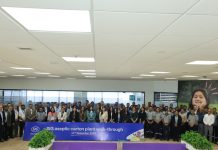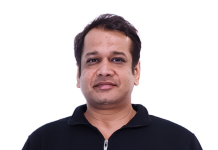WEBWIRE – Wednesday, October 5, 2022
Twenty years ago, the late Diane Weyerman set out to create a home for nonfiction storytellers at Sundance. Launched with support from the Open Society Foundations, the Documentary Film Program (DFP) was grounded in human rights advocacy with an international lens from the very beginning. In the years that followed, DFP has remained fiercely committed to supporting resonant, urgent storytelling; building community for nonfiction artists; and helping to develop fearless projects through its funds, labs, and artist support for global storytellers.
It was this unshakable commitment that inspired me to join the DFP two years ago, during one of the most precarious moments in living memory.
In the midst of political, cultural, and environmental upheaval not to mention an ever-changing industry I knew that whatever the future held, the Sundance Institute had an essential role to play.
Independent voices, free expression, and a free press are foundational to a thriving democracy. They are the building blocks of a more just, equitable, peaceful, and sustainable world. These values have shaped my career as a filmmaker, journalist, educator, and funder, beginning with the first feature documentary I ever produced, The Weather Underground (dirs. Sam Green and Bill Siegel), which premiered at the 2003 Sundance Film Festival.
Since then, each project has presented unique challenges and opportunities. What has remained constant is a stubborn belief in independent artists determined to manifest their visions without undue pressure or influence from political or commercial forces. Nonprofit programs like the DFP and many others in the ecosystem make this possible.
Over these last two decades, under the leadership of visionaries like Diane Weyerman, Cara Mertes, and Tabitha Jackson, the DFP has supported films that elevate human rights, social justice, and the art of nonfiction. Hundreds of groundbreaking, prolific artists have found community and connection here at Sundance from my own beloved mentors Jon Else (Wonders Are Many, Land of Gold) and Debbie Hoffmann (Long Nights Journey Into Day, Unrest) to creative North Stars like Lourdes Portillo (Senorita Extraviada) and Natalia Almada (El General, El Velador, Users). It is a privilege to help carry on a legacy that has so significantly contributed to the two most robust decades in independent documentary history.
Thanks to our many partners and supporters who share Sundances commitment and vision, the DFP has supported more than 1,000 projects in 20 years. We are currently investing nearly $2 million a year in nonfiction storytellers by providing unrestricted funding from development through post production, in addition to the Edit, Story, and Producers Labs.
This work has always been important, but it has never been more crucial than it is today. This is a unique moment of disruption within the industry, given the impact of COVID, the prevalence of streaming platforms, and the consolidation of media companies. Sundance Institutes DFP will continue to support the field at large by advocating for producers and editors, prioritizing marginalized storytellers and regions with developing documentary fields, and investing in initiatives like the collaborative revamp of the Documentary Core Application and the National Endowment for the Humanities Sundance | Sustainability Fellowship. But theres much, much more to do, from helping filmmakers navigate digital and legal risk to nurturing rigorous and ethical filmmaking practices.
In these times of human rights atrocities, grave threats to democracy, and widening inequities in the U.S. and around the world, DFP is even more committed to supporting those independent watchdogs and artists who indelibly expose realities that are at best invisible and at worst concealed. There has never been a greater need for artists who can take us beyond our lived experiences, inspiring us with beauty, possibility, and understanding.
As a form, documentary refuses to be constricted. Whether a revolutionary act, an artistic expression, a reexamination of history, or a personal or prophetic journey, documentary is as surprising, nuanced, and messy as the conditions it seeks to capture. Documentarians often begin a project not knowing how a story will end. None of us knows where our collective story ends, but I do know that nonfiction artists will continue to lead the way, and DFP will be there to uplift and support them.
Happy 20th anniversary, DFP. From the bottom of our hearts, thank you for being part of this 20-year journey. And heres to the next 20 years!
Carrie Lozano
Director of Documentary Film Program and Artist Programs





